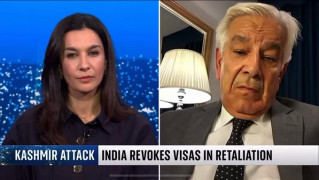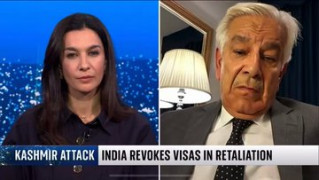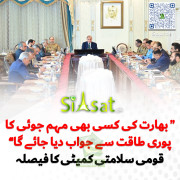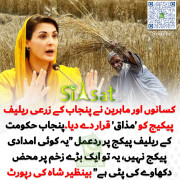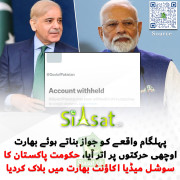Citizen X
(50k+ posts) بابائے فورم
In recent times, a robust and widespread discussion has emerged around the authenticity and sanctity of Sahih al-Bukhari. This is not a new controversy, nor is it limited to a few isolated voices. From the Arab world to the Urdu-speaking scholarly circles, and beyond, this discourse is increasingly gaining traction. The purpose of this article is to critically analyze the issues surrounding Sahih al-Bukhari, raise valid questions, and promote transparency without discarding our scholarly tradition.
My critique is not rooted in ignorance or malice, but in a sincere desire for intellectual honesty and reform.
The Growing Critique This discussion has gained momentum globally. In the Arab world, academic and religious forums alike are revisiting the role and content of Sahih al-Bukhari. Debates on TV shows, YouTube channels, and academic institutions reflect that this is far from a fringe idea. It reflects the level of frustration and disillusionment felt by many when confronted with problematic hadith content.
The Core Issues So why raise this issue now? There are three main concerns:
Why is it that people can critique the Quran in its meaning and wisdom without causing an uproar, but Bukhari is untouchable? Why is reason and the Quran itself sidelined when a hadith in Bukhari contradicts them?
Lets look at this person Frabari in detail is this person farabri reliable? Bukhari had many students according to Frabri himself Khatib al-Baghdadi brings a chain quoting Frabri to say there were 90 000 people who transmitted Bukhari from imam bukhari and then he goes on to say but none of them are alive today except me. There were many others who transmitted but none of their complete copies exist today and we have already covered that in part 1 Like Ibrahim Ibn Ma'qal but even his version of Bukhari has only 1200 hadith out of the over 7700 in the complete Bukhari.
So now we are left with every copy traced back to Frabri, so as per hadith sciences he has to be vouched for? But why did nobody declare
him to be reliable this is the question because he lives in a time where he is rubbing shoulders with some of these great scholars he's obviously met bukhari he's in the time of people like Tirmidi, Abu Dawood, he's in the time of Abu Hatim, Abu Zu'rah, he's in the time of Ni'sai. He's in the time of all of these great and some of them are junior to him or like some of them may be senior
nobody who actually knows him ever vouched for him as reliable.
Yes their have been claims that he is been reliable by "many scholars". The question is when they say he is reliable, who has vouched for him? The earliest that they're going with are people that first of all never ever met him, came over a hundred years after him and then secondly it's very suspect that they even said this because it's not in their books, so it's highly suspect.
So bridge this gaping chasm the scholars come up with because people transmitted from him that should make him reliable because he had at least one scholar of hadith called Al-Hafiz Ibn Sakan who transmits from him therefore it should be at least fine. But you see even Ibn Sakan who takes Bukhari from Frabari even he doesn't declare him to be reliable but the scholars insist that this should make him reliable. Ibn Sakan by the way is know from his extremely leniency and relaxed attitude and almost willy accept hadith and declare people thiqa or reliable and even he hasn't declared Frabri thiqa!
Even the great scholar Khateeb Al Baghdadi said, if a scholar transmits from somebody that does not mean they are declaring them reliable. And that anybody who believes that just because someone transmitted from someone makes him reliable is absolutely false and baseless. Which should be the case because then everybody would be reliable when it comes to hadith and history.
And now we come to a even bigger problem than just Frabri himself. We've established that no one vouched for him as reliable and those who did or were made to seem so also have issues. But even bigger issue is that we don't even have Frabris own copy of Bukhari and thats where the real problems start to surface. Frabri's student Abu Ishaq al-Mustamli says I copied from Frabris copy of Bukhari and I saw many things that there were many thing that were still incomplete in Frabri's copy. He had chapter headings which were empty, they had no hadith in them, some hadith with no chapter heading and he says so we started to move them around.
And what proves this to be true is ( As said by Abu al-Walid al-Bājī in Fath al-Bārī by Ibn Ḥajar ) that Mustamli's copy, Sarakhsi's copy, Kushmahīn's copy, Marwazi's copy are all different, so it shows, despite them taking from one book how are they all different? And they are not minor differences or mixups, disagreement with names and actual names in the isnad are missing as well.
SO Frabri's students did as each of them pleased with Frabri's incomplete copy of Bukhari.
The the Mamluk Sultan of Egypt and Syria commissions Al Yunini to standardize the Bukhari. So he does his grand makeover project with massive monetary backing from the Sultan to get it right. Yunini makes huge amendments and he sits with the grammarian Ibn Malik and they then make amendments to the Arabic as well. Question is why were there such big errors even in the Arabic itself in the first place?
And then Al Yuninis grand copy also goes missing and we only have copies from his copy which then later on are redone again by
under the commissioning of Sultan Abdul Hamid II of the Ottoman empire and even that has several mistakes in it. The point is can the scholars answer all these things and the answer is they can't.
Let's look at that claim once again shall we, the claim is that, this is the most authentic book on planet earth for Muslims after the Quran. Well after having read through all of that, keeping in mind we haven't even touched upon the problem with Imam Bukhari himself and he was well known for doing tadlis among MANY other things, it would be absolutely absurd to even think of Bukhari as the most authentic book.
Another question and this might be slightly conspiratorial that comes to mind is having gone through so many hands and before so many eyes over so many centuries, how come so many hadith still being published till this day, that make no sense and just a jumble of words, to hadith that have grammatical errors, to hadith that go against the Quran to hadith that are down right insulting to Allah, deen and the prophets. How come these hadiths haven't been omitted or filtered out in all this time and purposely kept in?
The time for blind reverence is over. The time for honest conversation has begun.
My critique is not rooted in ignorance or malice, but in a sincere desire for intellectual honesty and reform.
The Growing Critique This discussion has gained momentum globally. In the Arab world, academic and religious forums alike are revisiting the role and content of Sahih al-Bukhari. Debates on TV shows, YouTube channels, and academic institutions reflect that this is far from a fringe idea. It reflects the level of frustration and disillusionment felt by many when confronted with problematic hadith content.
The Core Issues So why raise this issue now? There are three main concerns:
- Near-Divine Status of Bukhari:
- Sahih al-Bukhari is often treated as sacrosanct, practically on par with the Quran in the eyes of many Muslims.
- While people might verbally deny this equivalence, in practice, Bukhari is rarely—if ever—criticized.
- Even verses of the Quran are sometimes sidelined if they contradict hadith in Bukhari.
- Problematic Hadith Content:
- Some hadith within Bukhari are, quite frankly, blasphemous, irrational, or degrading.
- Examples include narrations where the Prophet supposedly tried to seduce a woman and was rejected, or that Musa (Moses) had a scrotal hernia and chased after a rock that stole his clothes.
- Other narrations suggest that the Prophet was affected by magic to the point he hallucinated having sexual relations with his wives.
- Such narrations are not just questionable—they are deeply offensive to many Muslims and undermine the dignity of our prophets.
- Transmission Integrity:
- The entire text of Sahih al-Bukhari as we have it today is reliant on one main narrator: Muhammad ibn Yusuf al-Farabi.
- His manuscript was incomplete, and his students made alterations.
- Various manuscripts show discrepancies in chapter titles, chains of transmission (isnads), and even hadith content.
- Later scholars like Sharafuddin al-Yunini attempted to standardize the text but even his manuscript is lost. All we have are copies made by others, some of whom were financially incentivized.
- Even those standardized editions were later found to contain hundreds of errors.
Why is it that people can critique the Quran in its meaning and wisdom without causing an uproar, but Bukhari is untouchable? Why is reason and the Quran itself sidelined when a hadith in Bukhari contradicts them?
Lets look at this person Frabari in detail is this person farabri reliable? Bukhari had many students according to Frabri himself Khatib al-Baghdadi brings a chain quoting Frabri to say there were 90 000 people who transmitted Bukhari from imam bukhari and then he goes on to say but none of them are alive today except me. There were many others who transmitted but none of their complete copies exist today and we have already covered that in part 1 Like Ibrahim Ibn Ma'qal but even his version of Bukhari has only 1200 hadith out of the over 7700 in the complete Bukhari.
So now we are left with every copy traced back to Frabri, so as per hadith sciences he has to be vouched for? But why did nobody declare
him to be reliable this is the question because he lives in a time where he is rubbing shoulders with some of these great scholars he's obviously met bukhari he's in the time of people like Tirmidi, Abu Dawood, he's in the time of Abu Hatim, Abu Zu'rah, he's in the time of Ni'sai. He's in the time of all of these great and some of them are junior to him or like some of them may be senior
nobody who actually knows him ever vouched for him as reliable.
Yes their have been claims that he is been reliable by "many scholars". The question is when they say he is reliable, who has vouched for him? The earliest that they're going with are people that first of all never ever met him, came over a hundred years after him and then secondly it's very suspect that they even said this because it's not in their books, so it's highly suspect.
So bridge this gaping chasm the scholars come up with because people transmitted from him that should make him reliable because he had at least one scholar of hadith called Al-Hafiz Ibn Sakan who transmits from him therefore it should be at least fine. But you see even Ibn Sakan who takes Bukhari from Frabari even he doesn't declare him to be reliable but the scholars insist that this should make him reliable. Ibn Sakan by the way is know from his extremely leniency and relaxed attitude and almost willy accept hadith and declare people thiqa or reliable and even he hasn't declared Frabri thiqa!
Even the great scholar Khateeb Al Baghdadi said, if a scholar transmits from somebody that does not mean they are declaring them reliable. And that anybody who believes that just because someone transmitted from someone makes him reliable is absolutely false and baseless. Which should be the case because then everybody would be reliable when it comes to hadith and history.
And now we come to a even bigger problem than just Frabri himself. We've established that no one vouched for him as reliable and those who did or were made to seem so also have issues. But even bigger issue is that we don't even have Frabris own copy of Bukhari and thats where the real problems start to surface. Frabri's student Abu Ishaq al-Mustamli says I copied from Frabris copy of Bukhari and I saw many things that there were many thing that were still incomplete in Frabri's copy. He had chapter headings which were empty, they had no hadith in them, some hadith with no chapter heading and he says so we started to move them around.
And what proves this to be true is ( As said by Abu al-Walid al-Bājī in Fath al-Bārī by Ibn Ḥajar ) that Mustamli's copy, Sarakhsi's copy, Kushmahīn's copy, Marwazi's copy are all different, so it shows, despite them taking from one book how are they all different? And they are not minor differences or mixups, disagreement with names and actual names in the isnad are missing as well.
SO Frabri's students did as each of them pleased with Frabri's incomplete copy of Bukhari.
The the Mamluk Sultan of Egypt and Syria commissions Al Yunini to standardize the Bukhari. So he does his grand makeover project with massive monetary backing from the Sultan to get it right. Yunini makes huge amendments and he sits with the grammarian Ibn Malik and they then make amendments to the Arabic as well. Question is why were there such big errors even in the Arabic itself in the first place?
And then Al Yuninis grand copy also goes missing and we only have copies from his copy which then later on are redone again by
under the commissioning of Sultan Abdul Hamid II of the Ottoman empire and even that has several mistakes in it. The point is can the scholars answer all these things and the answer is they can't.
Let's look at that claim once again shall we, the claim is that, this is the most authentic book on planet earth for Muslims after the Quran. Well after having read through all of that, keeping in mind we haven't even touched upon the problem with Imam Bukhari himself and he was well known for doing tadlis among MANY other things, it would be absolutely absurd to even think of Bukhari as the most authentic book.
Another question and this might be slightly conspiratorial that comes to mind is having gone through so many hands and before so many eyes over so many centuries, how come so many hadith still being published till this day, that make no sense and just a jumble of words, to hadith that have grammatical errors, to hadith that go against the Quran to hadith that are down right insulting to Allah, deen and the prophets. How come these hadiths haven't been omitted or filtered out in all this time and purposely kept in?
The time for blind reverence is over. The time for honest conversation has begun.

